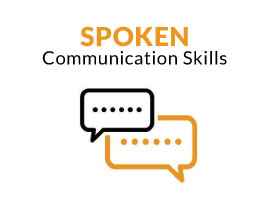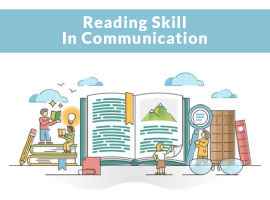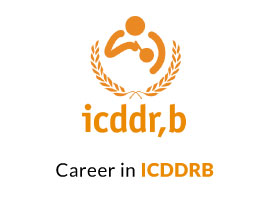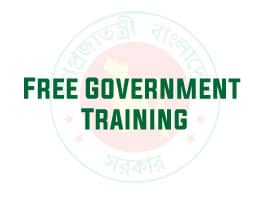What is the fact that distinguishes the animal kingdom from mankind? Yes, you're right. The capability of writing is a fact. No other species can transfer knowledge the way we do by using written support. However, we are lucky enough to have 5 different types of communication and written communication skill is one of them.
Written communication skill plays a very significant role to keep pace with today’s modern world. Keep reading this explanation to learn more about written communication: what it is, its importance, the advantages, and disadvantages of written communication skills, qualities of effective written communication, how to improve this skill, and examples of written communication skills.
What is written communication?
Generally, written communication means written texts or messages that two or more people exchange. In this form of communication written words are used to express feelings or ideas.
The way of sending messages, information, and orders in writing through letters, circulars, manuals, reports, telegrams, workplace memos, bulletins, etc. is known as written communication. It is a formal way of approaching and communicating with others.
Whether it's an email, a letter, a memo, a contract, a report, even a Facebook post, or a Tweet, etc. all kinds of written communication have the equal purpose to disseminate statistics cleanly and concisely. On the other hand, embarrassment and confusion occur due to poor writing competencies.
And there is one surprising fact about written communication is that, in this modern digital time, written messages get almost perpetuity. Thus, there are two things to remember: first, write well, because it matters to recall: first, write well – poorly constructed sentences and careless mistakes make your presentation bad; and second, make sure the content material of the message is something you need to sell or be related to for the lengthy haul.
Definition of written communication
Written Communication is the method of conveying a message via written symbols. In other words, a message that uses a written symbol to exchange ideas or thoughts between two or more people is called written communication.
In a broader sense, in which process written symbols and letters are used to exchange ideas or thoughts and communicate with others is called written communication.
Written communication is the most effective and powerful way of business communication. In any organization, emails, memos, reports, files, letters, journals, job descriptions, worker manuals, etc. are some most used forms of written communication.
Types of written communication
Well, we can write almost everything but depending on the purpose or intent of the communication, there are only 5 types of written communication in the workplace. They are, informational, instructional, advisory, transactional, and persuasive.
• Informational
The only aim of informational written communication is to give information on a specific subject matter to the target reader. Generally, this kind of informational writing does not require a reaction or response from the person reading that written material. The language used for informative content material should be direct for better understanding. Informational writings are frequently elaborate and cover a huge quantity of content material. Examples of informational writing include –
Reports
Reviews
Handbooks
Frequently Asked Questions
• Instructional
Instructional written communication is that type of written piece that is aimed to provide related precise instruction or commands on a specific topic or subject. This kind of instructional writing is mostly a step-by-step manual to assist the reader to understand what they have to do to complete the task or finish a mission. A reader can use instructional communication to carry out a task simultaneously.
Instructional text must be easy to comprehend. The tone of the writing must be short and easy. From primary to advanced instruction, the topic should be covered precisely, so that every reader from different levels of understanding can easily comprehend the topics. Examples of educational writing include –
Manuals
Procedures
Training programs
Instructional memos
• Advisory
These types of writing pieces are written to offer the reader knowledge and help them make a decision. Advisory write-ups are balanced in comparison to persuasive texts. They endorse some alternatives which can assist readers to determine what's appropriate for them. They suggest a few options that can help readers decide which one is right for them. One can often get written advice in-
Magazine articles
Blog posts
Letters
• Transactional
This type of writing is specially written for business purposes, where information is exchanged to conduct a transaction.
Transactional writing is used on an everyday basis. It requires the reader to do so or give a response after going through the messages. Short and straightforward messages are sent in the form of transactional content. Some examples of transactional written communication are –
Instant messages
Emails
Invoices
Forms
Short memos
• Persuasive
The purpose of persuasive writing is to provide information and make the reader inspire to leave a reaction. This type of writing gives an option to a reader's problem, motivating them to do so after going through the writing.
Persuasive writings are used for advertisements telling the reader, whether or not to shop for a product, donate money, and convince them that a product is better.
The language used for writing persuasive content material may be a little bit pushy to inspire people to make a purchase. Examples of persuasive communication are –
Advertisements
Brochures
Newsletters
Importance of written communication
Whether it is about the home or workplace the importance of written communication in our life is almost impossible to describe in words. Because somehow from the moment we open our eyes in the morning until we switch off the light to sleep at the night, we just spend our whole day on written communication.
We read the newspaper in the morning, read traffic signs and a billboard on the road, read emails and letters in our office, and help the kids with their homework, all are in different forms of written communication.
The importance of written communication in our workplace is given below.
• Accuracy
As there arises a great chance of misunderstanding and miscommunication with verbal communication along with telephone conversation, carefully written letters are here as a blessing. Many business communications are lengthy and complex. Carefully written letters help ensure that even complicated communications are accurate.
• Maintaining professionalism
In modern time almost every workplace have turned out to be more informal communication, and maintaining professionalism throughout email correspondences or other written exchanges remains important. Responses riddled with typos or complicated and improper grammar might also cause co-workers or superiors to impeach your professionalism or interest in detail.
• Communicating efficiently
Written communication is very important for efficient communication. Having sharp writing proficiencies allows you to accurately and quickly communicate updates, events, projects, or various important subjects to colleagues without requiring extra time for explanations or questions.
• Record Keeping
Written communication is much more professional and efficient than verbal communication because it is signed by one or more parties. It serves as a permanent record of an agreement, conversation, or deal.
• Economical
Written communication is cost-effective. A letter, for instance, is less costly than making long-distance phone calls. However, it can communicate the same thing.
• Getting hired
The significance of excellent writing skills begins at the hiring level. Cover letters are a vital part of many hiring processes, and applicants who show superb writing competencies often stand out in the application pool. The importance of showing effective writing at some stage in the hiring level extends to email conversations with potential employers in addition to effective resume writing.
Advantages of written communication
The advantages of written communication are innumerable. Ease of preserving, easily understandable, and serving as legal documents are some of them. So let's discuss the advantages of written communication.
• Easy to preserve: The files of written communication are easy to preserve. The oral and non-verbal conversation can't be preserved. If it's far needed, important facts may be accumulated from the preserved files.
• Easy presentation of the complex matter: Written communication is the excellent and best way to symbolize any complicated matter without problems and more attractively than it was before.
• Permanent record: The files of written conversation act as an everlasting record. When it's needed, crucial facts may be quoted from the preserved files without any hassle.
• Prevention of wastage of time and money: Written communication prevents the waste of money and time. As for exchanging views this type of communication doesn’t requires any kind of physical appearance, and this can save time and money.
• Accurate presentation: An accurate presentation is only possible with the document when it is written. Through the documents of written communication, one can easily and more present important information.
• Use as a reference: As it is written, it can be used as a reference for further needs.
• Delegation of authority: Written conversation can assist the authority to delegate power and authority to the subordinate. It is pretty not possible to delegate power without a written file.
• Longevity: Written records may be preserved for a long term effortlessly. That is why; all of the major problems of a business enterprise should be black and white.
• Effective communication: Written communication is more effective and reliable than other types of communication.
• Maintaining image: Written conversation is useful to maintain the images of both the employees and the institution. It also protects the image of the company.
• Accurate information: It is a right and complete communication process. And there is no chance to include any unnecessary and needless points in a written document.
• Less distortion opportunity: In this communication process information and data are recorded permanently. So, there may be less probability of distortion and alteration of the information.
• No misinterpretation possibility: There may be any possibility to misread the statistics or messages of written conversation.
• Tool controlling: Written communication can assist to manage organizational activity. The written record can be used as a tool for controlling.
• Verify easily: The data and messages which are preserved can be verified easily and effortlessly. If there arises any misunderstanding anyone can verify the information without putting much effort.
• Others: Clear understanding, legal report, acceptability, less risk, creating confidence, easy circulation, wide access or coverage, etc.
Disadvantages of written communication
Just as there are two sides to a thing, written communication also has two sides. Besides all the advantages it has some disadvantages too. The boundaries and downsides of written advertisement are given below.
• Expensive: Written communication is more expensive than other communication skills. For this communication paper, pen, essays, typewriters, laptops, and a huge labor force are demanded.
• Time-consuming: Written communication is time-consuming. It takes time to talk with others. It's a time-consuming medium. It requires the valuable time of both the writer and the reader.
• Red- tapism: Red- tapism is one of the most negative aspects of written communication. It means taking time for project approval.
• Not suitable for illiterate people: As it requires being literate, this is not working with illiterate people. This is one of the downsides of written communication.
• Difficulty in secret maintenance: It is quite impossible to maintain secrecy in written communication. It is an unexpected way to maintain secrecy in a business organization. Because here everything is recorded in black and white.
• Lack of flexibility: Any writing lines can’t be modified or changed at any time. It is a great matter of difficulty. Since writing, lines can't be modified without difficulty at any time. Lack of flexibility is one of the most pivotal obstacles to the written advertisement.
• Delay in response: It takes time to get a response from the message receiver. Instant response is not possible in the case of written communication which is possible in oral discussion.
• Delay in choice making: Written communication takes much time to speak with all of the parties concerned. So the choice or decision cannot be taken instantly.
• Cost in file keeping: It may be very tough and costly to maintain all of the data in written communication.
• Complex phrases: Sometimes the writer makes use of complicated phrases and words in writing a message. It will become hard to which means out to the reader. So the targets of the communication may also lose.
• Lack of direct relation: If there may be no direct relation between the writer and the reader, written communication cannot help to set up a direct relationship between them.
• Other: On the spot, feedback is not possible in written communication. Despite this, slowness, bureaucratic attitude, understanding problems among trouble among boos and subordinates, lack of quick correction, formality problems, and the impossibility of personal intimacy are the disadvantages of written communication.
Examples of written communication
What we write for communicating or exchanging thoughts are examples of written communication. It can be personal or institutional, formal or informal, serious or in a funny mood. Some examples of written communication are given below for your assistance.
• Emails
• Text messages
• Blog posts
• Business letters
• Reports
• Proposals
• Contracts
• Job descriptions
• Employee manuals
• Memos
• Bulletins
• Instant messages
• Postcards
• Faxes
• Advertisements
• Brochures
• News releases
• Websites
Qualities of effective written communication
Well, now it is clear that every single piece of written communication requires some quality to maintain a level. And some qualities make a piece of written communication effective and potential. Here they are.
• Comprehensive: The writing should include all the relevant and important detailed information.
• Accurate: All the presented information and data must be accurate and correct.
• Clear: The topic of the writing must be clear and understandable.
• Appropriate: The writing should have the perfect and right tone. It should maintain a level of formality.
• Composition: The writing must be free from any kind of grammatical mistake and spelling mistakes.
How to improve your writing skill
We all are potential writers by birth. Don’t believe my words? Well, we write emails, social media posts, message our friends, resume, cover letter, etc., and if our work requires we write reports, and presentations and the list is too long.
But to be a better writer is not too difficult as you think. You just have to follow some tips and tricks to bring a tremendous change in your writing quality. Here are some tips for your help.
• Practice
This is the ultimate way to improve your writing quality. The more you write, the more you learn.
• Make your concept clear
Albert Einstein said, “If you can’t explain it to a six-year-old, you don’t understand it yourself.” So try to make your concept clear so that anyone can understand. Don't make your writing complex by overloading
• Try to read the readers' thought
When you write something, just try to catch the reader’s mindset. Think that what you’ll think if you’re a reader and then write.
• Avoid unnecessary explanation
Do not make your writing lengthy with unnecessary words or explanations. Always try to give the explanation that is needed to make your writing piece clear. Try to avoid giving an unnecessary explanation.
• Always use easy words
Using easy words is one of the most important tricks to improve your writing quality. Simple words make your writing easy to read and understand which one of the main mottos of writing is.
• Keep your content concise
Clear and concise content is a first choice of a reader.
• Choose smart adverbs
Using a smart adverb can instantly change the appearance of the sentence and makes it more smoothly readable. For example, instead of 'very beautiful', you may write 'gorgeous', instead of 'very funny' you may write 'hilarious' and the list goes on.
• Use contractions
Use contractions in your writing. Without contraction, writing will sound stiff and formal. Use contraction to make it informal and less stuffy.
• Research before write
Make deep research on the related subject before starting your writing. Do not try to take shortcuts with the facts. It makes you appear like an amateur.
• Keep your sentence simple
Literary greats write long and complex sentences. But as a beginner, you must not follow them. You should try to keep your sentence as simple as it can be. But if you achieve the flow of your writing you may go for the complex one.
• Infuse your personality into your writing
Be yourself, when you write. Put your thoughts in your writing. Your writing should be the mirror of your personality.
• Read as more as you can
Read as much as you can. Make a habit of reading. The best writers are also keen readers. Expand your reading horizon.
• Expand your vocabulary
Expanding vocabulary can help you write a great piece. Using new words, synonyms, and antonyms may level your writing up.
• Try to avoid any grammatical mistakes
A grammatical mistake is a minus point for your writing skill. Try to make your writing free from any grammatical mistakes.
• Careful about spelling
Be careful about spelling. Misspelled words can even change the meaning of your writing. So take it seriously.
• Edit your writing unkindly
It is not an easy task to edit your writing for yourself. It is as difficult as scolding your child. But it will make your writing more interesting and engaging.
IELTS and TOEFL are two widely accepted test to measure four skills of Engliash Language incuding Written Communication. A better score/band in any of those tests, will give you confidence to move forward.
Conclusion:
Written communication is one of the most important skills to have in modern times. It is important not only in our personal life but it is important also for any business organization. So everyone should achieve effective written communication skills for their own sake. I








